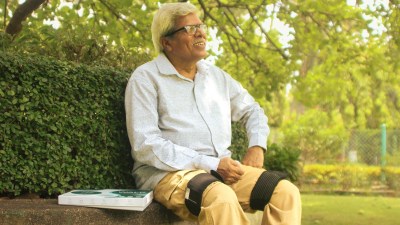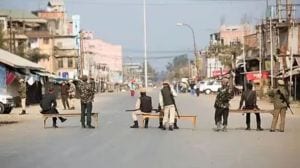After the fatwa
Deobandis state the obvious on terrorism. Will they be democratic on other issues?

With his dark essay on the 8216;murderous ideology8217; of Islamism, The Age of Horrorism, novelist Martin Amis horrified many liberals and voiced the corrosive, culturally blinkered argument that casts all Islam as a totalitarian cult 8212; 8220;Like fundamentalist Judaism and medieval Christianity, Islam is totalist. That is to say, it makes a total claim on the individual. Indeed, there is no individual; there is only the umma 8212; the community of believers.
Islam follows you everywhere, into the kitchen, into the bedroom, into the bathroom, and beyond death into eternity. Islam means 8216;submission8217; 8212; the surrender of independence of mind. That surrender now bears the weight of well over 60 generations, and 14 centuries.8221;
The Darul Uloom8217;s statements in Deoband opposed exactly this brand of illogic, condemning terrorism as well as the easy conflation of Islam and terrorist activity. The Deoband seminary is heavy with history and association, though undermined by the crank fundamentalist groups including the Taliban that claim ideological descent from Deobandi syllabi. Though all Deobandi movements stress utter adherence to the textual standards set by Hanafi tradition and are 8220;illiberal8221; in that sense, they are vastly different from what Amis tars as 8220;Islamist8221;. As Barbara Metcalfe has written, politics is an empty box for Deobandi movements, filled expediently with what is best in a given situation 8212; and they work best in secular regimes that give them the autonomy to prescribe 8220;correct practice8221;. And this statement fits right into their policy of pragmatic response, protecting their flock and highlighting Islam8217;s concept of peace, in this current climate of suspicion and hostility, and the spiralling alienation of Muslims worldwide.
But the more heartening reading is that unlike Amis8217;s claim of Islam8217;s cold immutability, this statement also reflects the ongoing contests among the ulema, the way Muslim scholars have attempted to engage with and accommodate democratic values within the framework of Islamic law. And now it8217;s up to them to hold the faithful to it.
Deoband has called upon itself a standard of engagement with modern democracy it will have to strive to match.
- 01
- 02
- 03
- 04
- 05






























